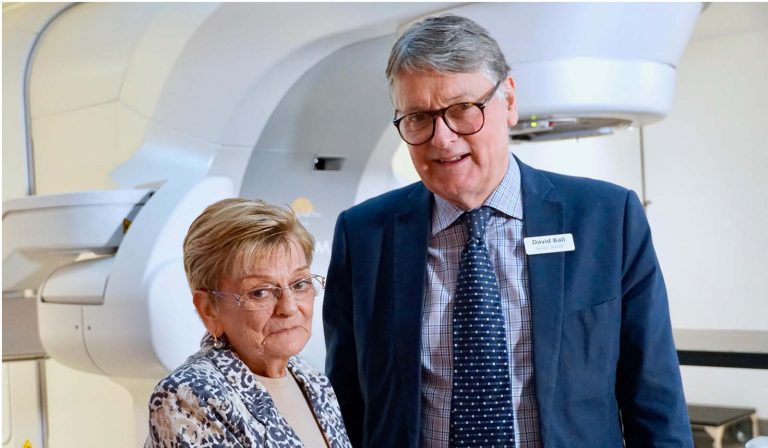Lung cancer is the fifth most commonly diagnosed cancer in Australia and, unfortunately, is the highest cause of cancer related deaths nationally.
However, research that is working to outsmart cancer has progressed treatment of inoperable lung cancer and has increased survival rates for patients.
A clinical trial by TROG Cancer Research and the Australasian Lung Cancer Trials Group has shown for the first time that a new radiation therapy technique produced greater survival rates in early stage inoperable lung cancer patients, compared to conventional radiation treatment.
The new treatment technology (Stereotactic Ablative Body Radiotherapy – SABR) is a highly-targeted technique that delivers high radiation therapy doses targeted at a patient’s tumour. The high dose means that patients can complete their treatment sooner than conventional radiation treatment, with fewer trips to the hospital.
101 patients with inoperable early-stage non-small cell lung cancer from across Australia and New Zealand participated in the trial, including Maureen.
Maureen had already received traditional radiation therapy as a treatment earlier in her cancer journey and found the new technology preferable to traditional methods.
“I didn’t have any side effects with the SABR technique and I had just three treatments, which was much better than the six weeks of radiation treatment I had to treat another lung tumour. With the traditional treatment I felt much more tired and had some burning to my chest and back,” Maureen said.
Professor David Ball, who headed the trial, said the results were a breakthrough for treatment worldwide.
“Our trial found that for patients with early-stage lung cancer, SABR was more effective in controlling cancer growth resulting in longer life expectancy, and is just as safe as traditional radiation therapy. We found that 89 per cent of cancers were controlled two years after SABR treatment and this compared to 65 per cent for conventional radiation therapy, and there was also a clear benefit in overall survival,” David said.
After two years, 77 per cent of the patients who received SABR treatment were surviving compared to 59 per cent of those who received conventional radiation therapy.
“The cancer treatment that saved my life was developed through a clinical trial”
What would you say to someone who participated in research that saved your life from lung cancer? Who helped reduce the side effects that came with your treatment and gave you more treatment options?
For 30 years, TROG Cancer Research has been conducting clinical trials research that has improved the outcomes and quality of life for patients of all cancers through one treatment – radiation therapy.
Thanks to the participation of the community in life-changing and life-saving research, cancer patients around the world have benefited from groundbreaking improvements in cancer-specific treatments.
Many people participate in clinical trials because they can access treatment that isn’t widely available yet, they receive excellent care and support from a team of health professionals, and they contribute to new and better ways to treat and improve quality of life for patients today, as well as for future generations.
Help TROG Cancer Research outsmart cancer by joining a clinical trial or donating to research that could save the life of a grandchild, friend, colleague or many others worldwide for generations to come.
Click here to make a donation.




